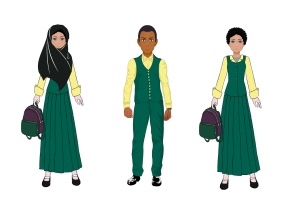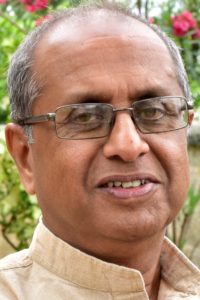
 By Shankar Raj*
By Shankar Raj*
Bengaluru: In a setback to the pro-hijab group, the Karnataka High Court today asked students not to insist on wearing ‘religious things’ till the court resolves the matter and asked the government to take steps to open educational institutions without delay.
Stating that students should maintain peace and tranquillity, the three-judge full bench of Chief Justice Ritu Raj Awasthi, Justice J M Khazi and Justice Krishna S Dixit adjourned the case for Monday.
“We are considering the issue of whether the wearing of headscarf comes within the Fundamental Rights. We are also considering whether wearing a headscarf is an essential part of the religious practice,” the High Court said.
Soon after the court adjourned the case, Karnataka Home Minister Araga Jnanendra told the media that schools and colleges will be opened in a phased manner and students should cooperate. The police are ready to support the reopening of schools in case of protests, he added.
The police have been directed to ensure law and order while maintaining extreme restraint in dealing with students. Students shouldn’t fall prey to communal elements who are hell-bent on making the hijab issue a tool to disturb communal harmony, Jnanendra added.
Meanwhile, efforts of the pro-hijab group seeking transfer of the case to the Supreme Court was dismissed. The apex court said that it would not interfere with the matter that is already being heard by the Karnataka High Court.
Senior lawyers here pointed out that since the 1950s, the Supreme Court and the high courts have looked deeply into the commencing words “subject to public order” in Article 25 of the Constitution and restricted or rejected any denomination’s claim to an indefeasible fundamental right for public display of religious practices or rituals.
Also read: Hijab issue referred to a larger bench of Karnataka High Court
The specific question on whether hijab is an essential religious practice was answered by the Madras HC bench headed by then Chief Justice A P Shah way hack in 2006. The petitioner in the case had challenged the photo voter ID cards being made mandatory by the Election Commission in Tamil Nadu. A Muslim man had filed the petition saying this hurt the community’s religious sentiments as the Quran prohibits photos of a woman without hijab/purdah on voter ID as these can be seen by strangers.
After studying the issue, the court said in its judgment that a noted Sudanese scholar Dr Hassan al-Turabi had stated that the verses of the Quran ordained that the wives of the Prophet draw a curtain (to ensure privacy in the Prophet’s room which naturally attracted many visitors of all sorts), and that they dress up completely without showing any part of their bodies including face and hands to any man; though all other Muslim women were exempted from these restrictions.
Later, in 2018, the Kerala High Court had ruled that it was for the institution to decide whether the petitioners — siblings Fathima Thasneem and Hafza Parveen — can be permitted to attend the classes with the headscarf and full sleeve shirt. The court was hearing a petition filed by two students of the Christ Nagar Senior Secondary School in Thiruvananthapuram.
While dismissing the plea to wear hijab, Justice A Muhamed Mustaque observed that it is purely within the domain of the institution to decide on the same.
The court said that one has the liberty to follow his or her own notions and convictions in the matter of dress code. At the same time, when such a right is claimed against a private entity which is also having an equal Fundamental Right to manage and administer an institution, the court has to balance the competing Fundamental Rights and decide the issue.
Justice Mustaque observed that the petitioners cannot seek the imposition of their individual rights as against the larger right of the institution and that it is for the institution to decide whether the petitioners can be permitted to attend the classes with the headscarf and full sleeve shirt.
*Shankar Raj is former Editor of The New Indian Express, Karnataka and Kerala, and writes regularly on current affairs.





